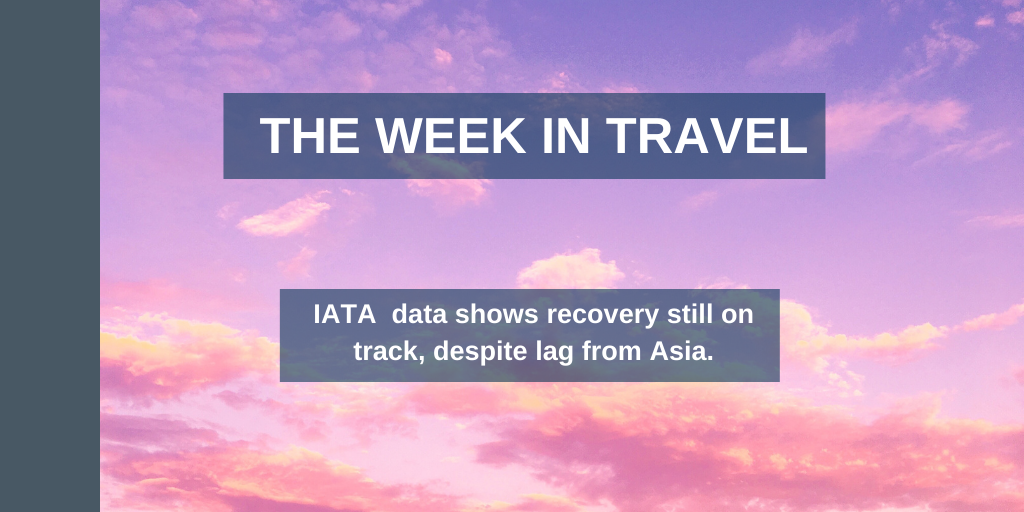The Week in Travel 4th March 2022

The International Air Transport Association (IATA) has provided a new update to its long-term forecast for the recovery of air-travel. While it maintains its forecast that 2024 will be the year that passenger levels exceed pre-pandemic figures, it points out that there are significant regional disparities in recovery, with the Asia-Pacific region currently lagging behind Europe and North America. IATA advice remains that all travel bans should be removed, and the easing of travel restrictions accelerated, in recognition that travelers pose no greater risk for COVID-19 spread than already exists in the general population.
Moivng away from the COVID conversations, the UK-based Business Travel Association (BTA) has urged the corporate travel sector to work together to ensure sustainable development. Although there is agreement across the industry that climate-action is the number-one priority for travel businesses, it also admits that there are significant challenges, including cost, measurement, communication and the lack of government support.
However, one of the developments there has been is the announcement that Swiss International Air Lines (SWISS), and its parent company Lufthansa Group have finalised an agreement with Synhelion to use its solar aviation fuel. Synhelion co-founder and CEO Dr Philipp Furler claims that their “next-generation carbon-neutral solar kerosene is an economically and ecologically viable substitute for fossil fuels”. The fuel is created through utilising solar heat to produce syngas that can then be synthesised into kerosene with the help of standard industrial processes at a later stage.
Additionally, the travel management company, TravelPerk, has launched a new platform which will allow businesses to measure their emissions from travel. GreenPerk API will provide travel management platforms with data and analytics about an organisation’s carbon footprint across different types of travel services, including flights, rail, accommodation and car rental.
In other news, Seattle Tacoma International airport has unveiled details and images of its new International Arrivals Facility (IAF). The IAF is due to open this spring and replaces the previous 50 year old customs facility. It is set to increase the capacity for international arrivals from 1,200 to 2,600 passengers per hour.
And in a week when the plight of those living in Ukraine has rightly dominated the headlines, the budget Hungarian carrier Wizz Air announced that they are providing 100,000 free flights for Ukrainian refugees. They have sent numerous planes to countries on Ukraine’s borders where people have fled. Speaking about this act of charity, Chief Executive Jozsef Varadi said that they “want to ensure that all Ukrainian refugees have access to affordable travel no matter where they are located during this time of crisis” and that as a company they would be happy “to provide a safe and welcoming journey for these refugees.”